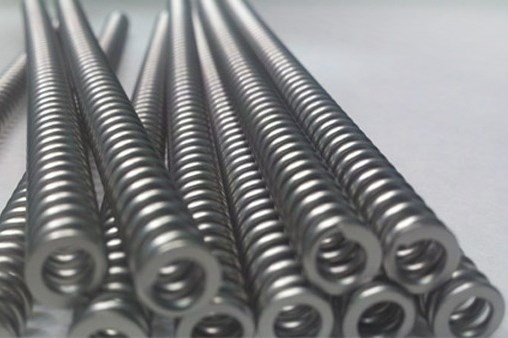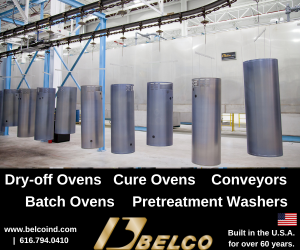Cleaning and Passivation of Custom Springs
A custom chemical cleaning and descaling process helps protect these highly-specialized springs that are used in the nuclear energy industry.

Photo Submitted by Andrew McDonald, Vice President of Business Intelligence and Continuous Improvement, Imagineering Finishing Technologies.
“These highly-specialized stainless steel springs used in the nuclear energy industry required our total quality management (TQM) approach to ensure rigorous process and testing specifications are met each and every time,” says Mike Kolo, Imagineering Finishing Technologies CTO.
According to the company, in order to protect the springs from premature failure and corrosion, a chemical cleaning and descaling process was custom developed to remove all manufacturing residue. Next, the passivation process forms a chromium-oxide layer on the stainless steel surface. After thorough inspections, the springs are then assembled into the nuclear fuel rod assemblies.
“Since contamination is a critical industry concern, a process room dedicated to the cleaning, passivation, and inspection of the springs was established,” Kolo adds.
Related Content
-
Products Finishing Reveals 2024 Qualifying Top Shops
PF reveals the qualifying shops in its annual Top Shops Benchmarking Survey — a program designed to offer shops insights into their overall performance in the industry.
-
Products Finishing Reveals 2023 Qualifying Top Shops
Each year PF conducts its Top Shops Benchmarking Survey, offering shops a tool to better understand their overall performance in the industry. The program also recognizes shops that meet a set of criteria to qualify as Top Shops.
-
How to Choose Between Sulfate and Chloride-Based Trivalent Chromium
There are several factors to consider when choosing between sulfate and chloride-based baths for trivalent chromium plating. Mark Schario of Columbia Chemical discusses the differences and what platers should keep in mind when evaluating options.









.jpg;maxWidth=300;quality=90)



